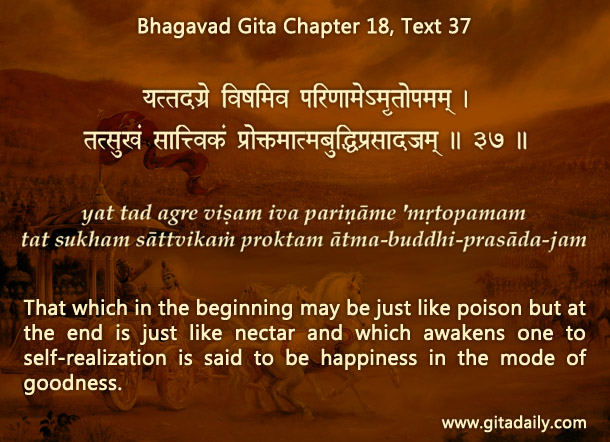Suppose we are working in customer support and a disgruntled customer is speaking with us rudely, even obnoxiously. Still, we may have to plaster a smile on our face and speak politely. Such surface acting is sometimes necessary, but it soon becomes emotionally exhausting.
Amid emotional and mental health challenges, mindfulness is often presented as a panacea. Mindfulness refers to various techniques and practices for becoming more aware of our situations and our emotions. And mindfulness can help us stay in the present, which is made quite difficult by our distractible mind and our distraction-filled culture. However, mindfulness can hurt in some situations such as those requiring surface acting. In such situations, the more we become aware of our emotions, the more we feel uncomfortable, even miserable.
How can we face such unpalatable situations and emotions? Not by mindfulness, but by purposefulness. We need to focus not on our situations or our emotions, but on our intentions: on why we are in that situation which triggers such emotions. If we want to attain something worthwhile, we often need to persevere through various difficulties such as unpleasant situations and emotions. The Bhagavad-gita puts this reality poetically: to taste nectar, drink through poison (Bhagavad-gita 18.37).
At the Gita’s start, Arjuna became aware of both his situations — the upcoming fratricidal war — and his emotions: fear and horror. That awareness left him disoriented, demoralized, devastated (01.46). Gita wisdom raised his awareness far beyond his situations and emotions to his intentions: he was a martial guardian who was bound by sacred duty to establish social and spiritual order. Only when he focused on that purpose was his composure restored (18.73).
One-sentence summary:
Don’t just be mindful; be purposeful — becoming aware of our emotions and situations is important, staying aware of our intentions is even more important.
Think it over:
- When can mindfulness hurt?
- What do we need to face unpleasant situations and emotions? Explain.
- Are you facing any difficulty? Contemplate how purposefulness can empower you to go through it.
***
18.37: That which in the beginning may be just like poison but at the end is just like nectar and which awakens one to self-realization is said to be happiness in the mode of goodness.


Different perspective …..never think about it or with my limited knowledge ….I appreciate the way your examples greatly influence and able to apply present situation….Thank you so much chaitanya charan Das….Hare Krishna!
thanks, happy to be of service.